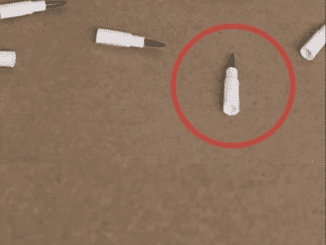Remember those long summer days as a child when you’d explore your backyard, digging through the ground? Maybe you found a rusty coin or a long-lost toy and wondered about its origins. Recently, we had a similar experience.
Our landscaper discovered a porcelain standoff buried ten feet deep in our garden—a crucial piece of electrical history.
You might not know what porcelain standoffs are, but they played a vital role in early electrical distribution networks. These ceramic insulators suspended bare electrical conductors, preventing contact with other conductive substances. This simple task was essential for maintaining the safety and functionality of electrical systems, especially when electricity was a new invention.

Imagine the early days of electrification. Power was gradually being introduced into daily life, with homes, streets, and cities becoming electrified. Porcelain standoffs, with their ceramic housing, protected power lines, minimizing electrical hazards and facilitating the spread of electricity—a commodity we now take for granted.
Finding this porcelain standoff isn’t just discovering an old ceramic piece; it’s connecting to a time of significant technological and cultural advances. From the early 20th century, the use of electricity revolutionized daily life, bringing comforts that shaped society. These standoffs, often overlooked, supported the wires powering radios, lighting homes, and enabling longer working hours. They were the foundation of our modern society.
Holding this porcelain standoff, still strong despite the passage of time, connects us to the creativity and hard work of previous generations. Their seemingly basic inventions laid the groundwork for our current comforts and advancements. In our increasingly technological society, it’s important to value these historical items, reminding us of the era when the world was discovering electricity.
Discovering this porcelain standoff has highlighted that past decades were not as primitive as we might think. It’s a symbol of human creativity and the relentless pursuit of advancement. Instead of focusing on historical problems, we should celebrate the achievements that led to our present. Next time you come across an old artifact, consider the history it holds and the future it helped shape.
This porcelain standoff is more than a new addition to our collection. It’s a link to an era of significant advancements and growth. Each discovery of such relics reminds us to appreciate the journey that has shaped our current society and will continue to shape our future.
The discovery of a humble porcelain standoff has reminded us of the importance of appreciating the past. These unsung heroes of electrification played a crucial role in the technological advances that transformed our world. By valuing historical artifacts, we can better understand the journey that has led us to where we are today and inspire us to continue pushing the boundaries of progress.


